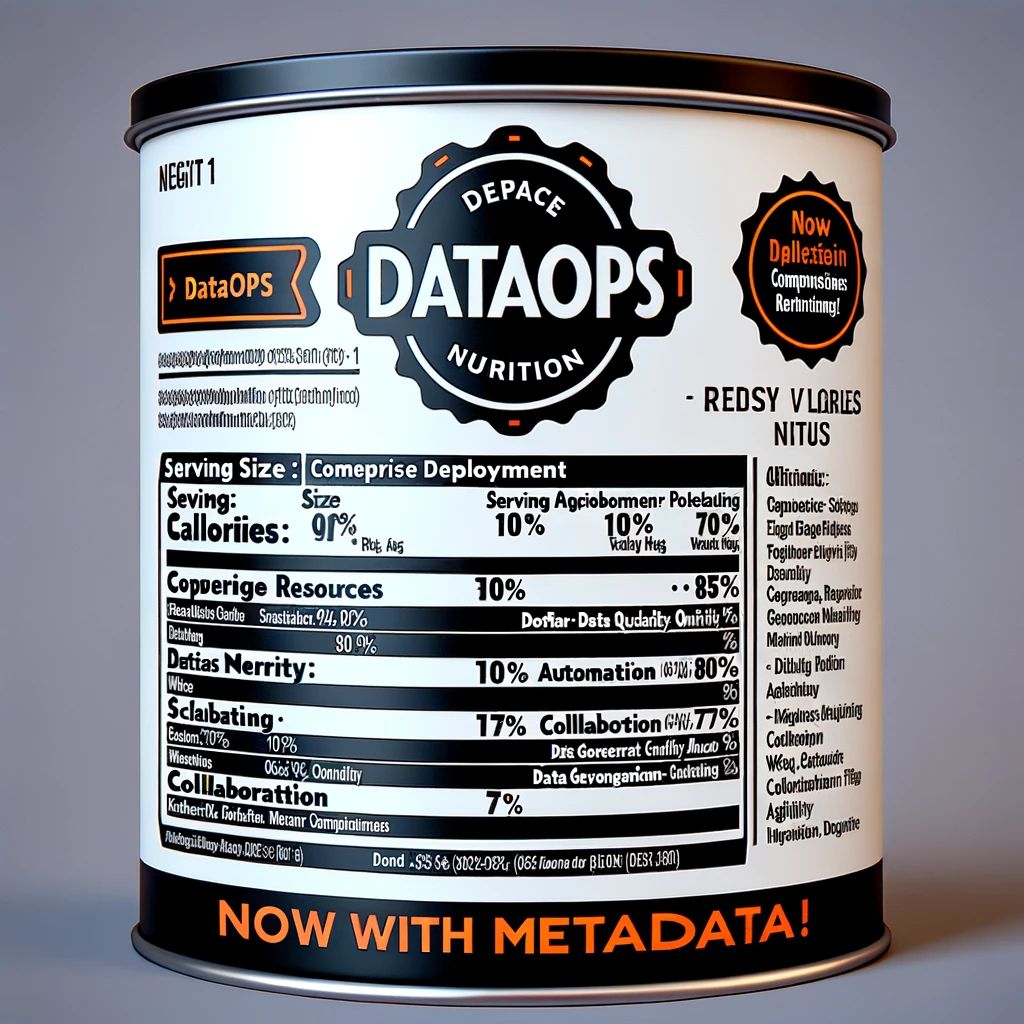Metadata can transform your DataOps from a reactive, time-consuming process into a proactive, streamlined operation that anticipates and adapts to your data needs in real-time. By leveraging metadata, organizations can automate workflows, improve data quality, and enhance decision-making, unlocking new levels of efficiency and insight.
THE WHAT
Metadata is data about data. It details the source, format, content, and context of your data, acting as a blueprint that guides how data is handled. Think of it as the ingredients list on your favorite food, providing insight into what’s inside.
Metadata collection involves capturing information at every stage of the DataOps lifecycle. From creation or acquisition, through updates and usage, to archiving or deletion, every interaction is logged. This can be automated through tools and systems designed to track data flow, ensuring a comprehensive metadata repository.
THE HOW
Automation: By using metadata, DataOps processes can automatically detect and respond to changes in data structure, volume, or processing requirements. This reduces the need for manual intervention and increases the speed of data flows.
Governance and Compliance: Metadata provides detailed information about data lineage, which is crucial for meeting data governance and compliance requirements. It allows organizations to track the origin, movement, and transformation of data throughout its lifecycle.
Data Quality and Integrity: Through metadata, systems can implement checks and balances to ensure that data meets quality standards and remains consistent and accurate as it moves through different stages of processing.
Integration and Interoperability: Metadata-driven DataOps facilitates easier integration of disparate data sources and systems. It helps in mapping different data models and formats, making it easier to combine and use data from various sources.
Discovery and Accessibility: Enhanced metadata management improves the discoverability of data assets, making it easier for users to find, understand, and use data effectively.
THE WHY
Increased Efficiency: Automation of data management tasks reduces manual efforts and speeds up data processing workflows.
Improved Data Quality: Consistent application of data quality rules across the lifecycle ensures high-quality data outputs.
Enhanced Compliance: Detailed tracking of data lineage supports compliance with data governance and privacy regulations.
Better Decision Making: Easier access to and understanding of data assets leads to more informed decision-making across the organization.
In an age where data complexity and volume are ever-increasing, Metadata-
Driven DataOps not only streamlines operations but also ensures that data remains a reliable, compliant, and valuable asset. It empowers organizations to harness their data’s full potential, driving efficiency, innovation, and better decision-making.
Understanding Why Metadata Matters …



